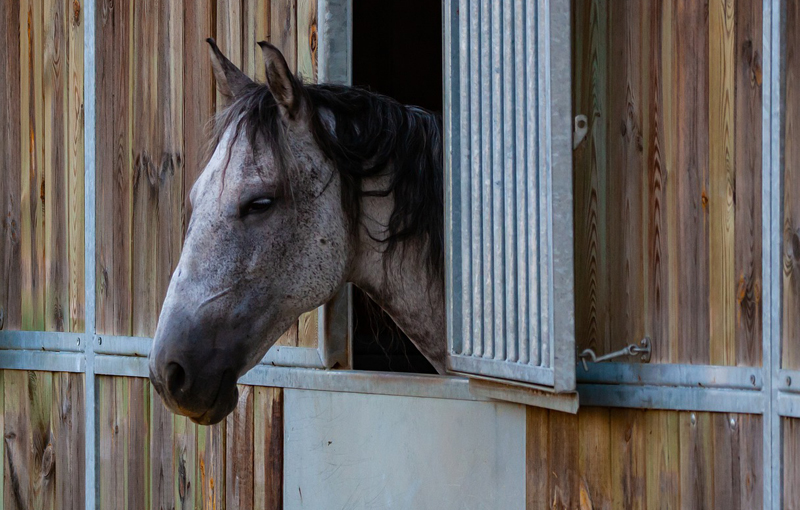Equine Canada is pleased to announce the Equine Code Development Committee of 18 stakeholder representatives from eight provinces has been finalized and the next stage of revising the Code of Practice for Horses, last developed in 1998, can begin. Following the nationally recognized and supported National Farm Animal Care Council (NFACC) Code Development Guidelines, the Equine Code Development Committee will work with the Equine Scientists’ Committee, assembled by NFACC, to develop the new Code of Practice for Horses that is planned for release in 2013.
The Codes of Practice are nationally developed guidelines for the care and handling of the different species of farm animals. They are intended to promote sound management and welfare practices through recommendations and requirements for housing, management, transportation, processing and other animal husbandry practices. Requirements refer to either a regulatory requirement, or an industry-imposed expectation of best practices to encourage a higher level of care.
Participants on the Equine Code Development Committee represent a broad cross-section of the industry in Canada, with significant expertise in care and custody, equine health and veterinary care, technical knowledge, research, welfare legislation, regulation and/or enforcement, environmental or ecological science, biosecurity, and international best practices. Expertise in the unique husbandry practices required for large-scale equine breeding, feedlot management, draft horses, race horses, donkeys and mules, Quarter Horses, Arabians, and horses used primarily for the equestrian sports of jumping, dressage and eventing, as well as driving, western sport, recreation and outfitting are well-represented.
All participants are cognizant of the purposes and uses of horses in Canada, have experience actively participating in volunteer committees and have proficient oral and written communication skills. The process will enable them to solicit feedback from the organizations or sectors they have expertise in and provide updated information for dissemination.
A key feature of the Code process is the inclusion of a Scientists’ Committee, comprised of researchers and academics brought together by NFACC. It will review the research relative to the priority welfare issues for equidae and compile a summary report. The report will provide science-based information to the Equine Code Development Committee.
As a member organization of both NFACC and the Canadian Animal Health Coalition (CAHC), Equine Canada facilitated the organization of the Equine Code Development Committee. Since 2005, it has been leading the effort to update the Code of Practice for Horses. In 2009, the NFACC Code Development Guidelines were approved and in April 2010, the Government of Canada announced funding of this project through AgriFlexibility, a program delivered in Canada’s Economic Action Plan.
“The Code of Practice for Horses was last updated in 1998 and given the dramatic increase in the number of horses in Canada at the recreational, sport and agricultural levels, as well as the technical and health advances since then, the Industry Division of Equine Canada deemed the revision of the Code to be a high priority,” stated Dean Leifso, Chair, Equine Canada Industry Division Council. “It is gratifying that the Government of Canada and the National Farm Animal Care Council recognized the need for a revised equine Code of Practice and have provided support to develop and distribute the new Code to Canada’s equine community.”
Codes of Practice serve multiple purposes including
• providing information and education,
• serving as the foundation for animal care assessment programs, and
• providing reference materials for regulations.
The NFACC Code of Practice Development Process aims to
• link Code recommendations with science,
• ensure transparency in the process,
• include broad representation from stakeholders,
• contribute to improvements in farm animal care,
• identify topics for research and encourage projects,
• write clearly to ensure ease of reading, understanding and implementation, and
• provide a document that is useful for all stakeholders.
“Equine Canada advocates the humane treatment of all horses, donkeys and mules, and believes that the equine industry and owners have a responsibility to provide humane care,” stated Dr. Mary Bell, Co-Chair, Equine Canada Health and Welfare Committee. “The updated Code of Practice for Horses will provide guidelines to assist in improving an animal’s quality of life from birth through death.”
Caroline Ramsay has been contracted by NFACC as the Equine Code Development Secretary and will facilitate the work of the Equine Code Development Committee. Caroline has a Bachelor of Science degree from the University of British Columbia. She is an articling agrologist and her work experience includes drafting standards and serving as a liaison for a farm animal welfare certification program.
For more information about Code of Practice for Horses renewal, e-mail equinecode@equinecanada.ca or visit http://doiop.com/ec_code_e
More from Horse-Canada:




